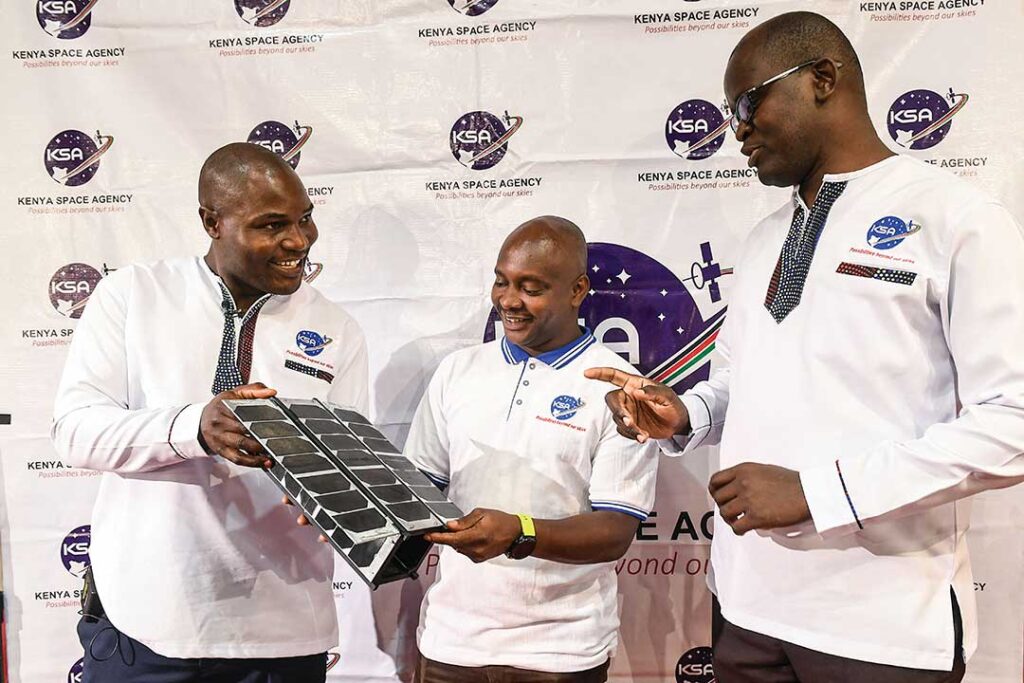AGENCE FRANCE-PRESSE
After decades on the sidelines, African countries are venturing into the space industry, hoping to reap rewards in agriculture, disaster prevention and security.
Côte d’Ivoire, which hosted a “NewSpace Africa Conference” in April 2023 organized by the African Union, has announced the creation of a space agency and plans to build the country’s first nanosatellite by 2024. Nanosatellites have a mass of 1 kilogram to 10 kilograms. About the same time, Kenya’s first working satellite was put into orbit by a SpaceX rocket launched from the United States.
The two countries follow African pioneers South Africa, Nigeria, Algeria and Egypt — a trailblazer that owned the first African satellite sent into space in 1998. According to AU space program coordinator Tidiane Ouattara, about 15 African countries have a space agency.
The AU in 2018 adopted the statute for the African Space Agency, whose headquarters will be in Cairo alongside the Egyptian Space Agency, to promote coordination among AU members.
According to a Vienna-based nongovernmental organization, the Space Generation Advisory Council, African countries have launched 41 satellites since 2016, led by Algeria, Egypt, Nigeria and South Africa. Only nine were designed and made in African states. Foreign states provided the rest, including their launch capability.
Experts say that cost — the great barrier to entering space — is dropping thanks to cheaper components and miniaturization, which reduces satellite weight.
“Space is no longer expensive, not at all,” Ouattara said. African universities can build a nanosatellite for between $50,000 and $100,000, he said.
A top priority for African countries is Earth observation — satellites that monitor cloud cover, rainfall, flooding, drought and related matters, said Mamadou Sarr, head of the Regional African Satellite Communication Organization. This can be helpful for agriculture.
Satellites also can play a security role by monitoring coastal fisheries and the movements of violent extremists destabilizing the Sahel and northern Mozambique.
Another big market is communications. Africa was an early convert to satellite technology, which along with mobile phone networks helped it leapfrog over copper wire networks.

